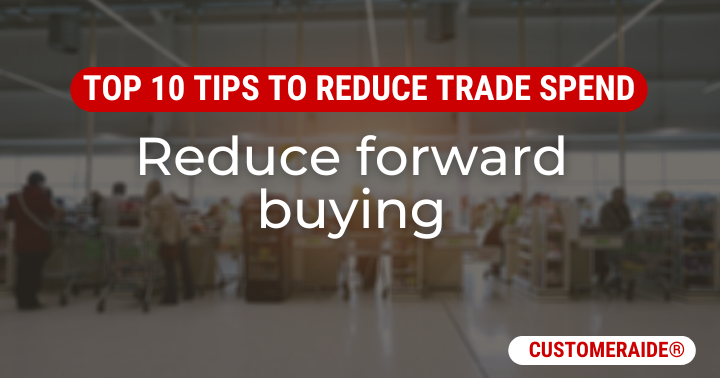
In volatile price sensitive markets where our customers have a choice of suppliers they can work with; or in low loyalty categories, it makes sense that our customers will want to forward buy stock when the price and margin gain makes it attractive for them to do so.
Understanding volume requirements based on true shopper-based demand (with a clear sell out strategy and tactics for our categories and brands) gives us the confidence to limit the amount of stock available to forward buy. We can then reduce the volume we sell on promotion.
It can be tempting to achieve our internal sales targets by confirming additional volume sales (ahead of demand) , especially when your customer expresses an interest in forward buying. A bird in the hand seems like a good deal, but we know that without a robust sell out plan we are simply creating a future problem that may need to be dealt with since stock pressure does not necessarily equal sales out. We are also reducing our ability to sell at improved margins in the future.
We can reduce and optimise our trade spend by limiting the amount of forward buying we allow with our customer.
To establish how much of our volume we are selling on discount, or at a reduced margin, we need to understand the following:
- What is the customer’s buying in requirement?
- Why do customers want to buy promotional stock after the promotion has ended or ahead of anticipated demand?
- Have we calculated the likely volume uplift from the promotional activity; and the estimated sales out?
- Importantly, can we match sales out to the volume bought by our customer?
To reduce forward buying we will also reduce the promotional discount “shipping windows” (i.e. the periods of time in the year when we are discounting your brand or service). Effectively we then reduce the overall proportion of our brand sold on discount; versus the non-promoted sales proportion.
Are you able ( or brave enough ) to limit the amount of forward buying with your customer?
Next in our ‘Top 10 Tips to Reduce Trade Spend’ series we think about generating a better return on investment and optimising trade spend by focusing on fewer bigger events with our customer. If you have any questions or comments please get in touch.